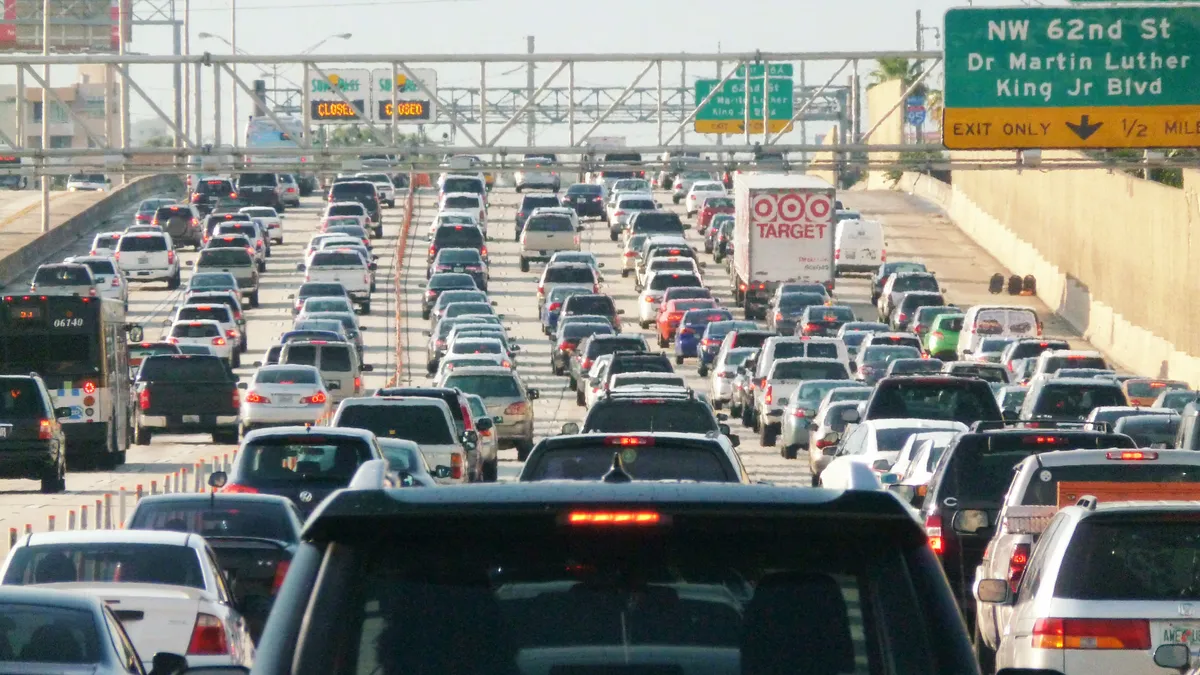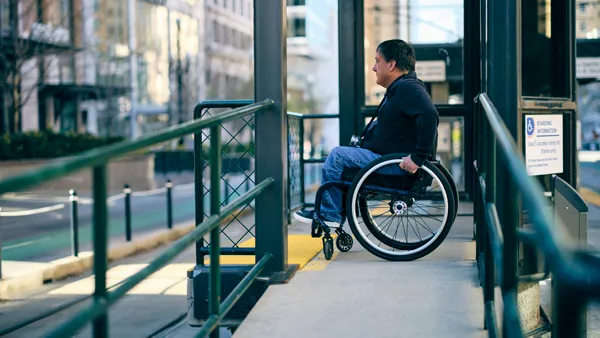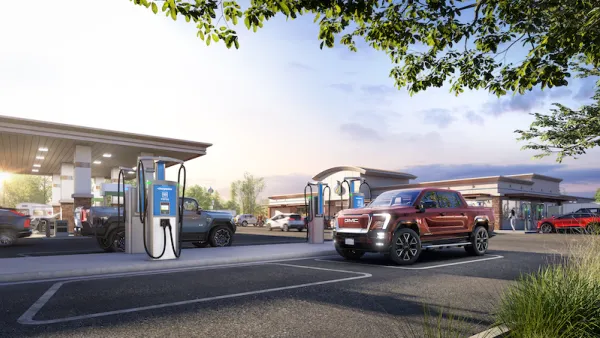Dive Brief:
- Private car travel will decline in the world's largest cities by 10% over the next decade, according to a study from research consultancy firm Kantar, revealed this week at the UN-Habitat World Urban Forum.
- The firm surveyed 20,000 city dwellers across 31 cities to understand how their preferred mobility modes may change over the next 10 years. Based on the survey, Kantar predicts greener means of transport will represent nearly half (50%) of all trips taken in cities in 2030, with cycling to increase globally by 18%, walking to increase by 15% and public transit use to increase by 6%.
- The study identified 10 cities that will see the biggest transformation in green transport: Manchester, England; Moscow; Sao Paulo; Paris; Johannesburg; Guangzhou, China; Milan; Montreal; Amsterdam and Shanghai.
Dive Insight:
Instead of simply focusing on policies and directives from local governments to encourage greener modes of transportation, Kantar's study took a unique look at the current and desired behaviors of city dwellers to understand how receptive they are to new mobility. Through this lens, Kantar recognized four main themes: people are ready for change, travel choices are emotional, all cities are different and sharing is transformative.
These themes are key for city planners and policymakers to understand when introducing and regulating new, greener mobility. Understanding the emotional factors that drive certain transportation choices — such as convenience or comfort — is crucial to deploy alternative transportation options that will meet rider needs.
Kantar emphasized that citizens' willingness to change transportation behaviors is largely dependent on trust. According to the study, cities like Berlin, Amsterdam and New York "all demonstrate a clear gap between the cities’ readiness for change, and their citizens’ trust." To improve trust, cities must prioritize community input and address top concerns around safety and equity. Even more complicated concerns, like how new mobility will be insured, can impact the trust citizens have in mobility offerings.
As local governments work to hit lofty emissions reduction targets, moving away from personal car use is a top objective. Kantar also suggested Mobility-as-a-Service, mobility hubs and autonomous parcel delivery as transportation innovations that deliver "both sustainability and convenience."
Some leader are already ahead of the curve. The City of Minneapolis is testing mobility hubs as spaces where citizens can access non-vehicular transportation options such as transit, bikes and scooters. On the private sector side, Waymo and UPS have partnered on an autonomous parcel transportation pilot to cut delivery times and decrease emissions.












